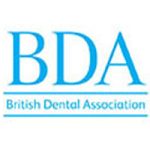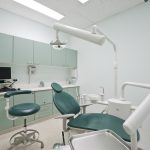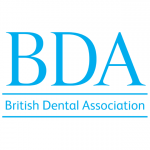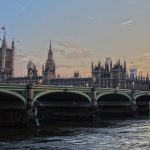The British Dental Association has warned that the collapse of remote-orthodontic giant SmileDirectClub will not close the door on the clear risks to patients presented by remote orthodontics. [1]
The business model – offering patients plastic aligners based on a 3D scan of their mouths or via an impression taken from at-home moulding kits – can lead to fundamental changes to a patient’s mouth that may be irreversible.
The BDA has regularly raised concerns directly with regulators – the Care Quality Commission and General Dental Council – about this practice since 2019. The professional body warn that the bankruptcy of the market leader should not be viewed as a substitute for meaningful regulation to protect patients.
In 2021 the GDC published guidelines, stressing that orthodontic patients need to be fully assessed by a dentist, that direct dentist-to-patient interaction – the basis for informed consent – is essential, and that patients must know the name and registration number of the dentist responsible for their care. However, it did not offer any clarity on what sanctions it might utilise and how the regulator backed up its assumption that such models of care are “safe for many people.”
Dentists have stressed the risk of misdiagnosis and lack of informed consent in the absence of face-to-face consultations throughout the course of treatment. The BDA has seen cases of patients with advanced gum disease that have been provided with these aligners, potentially leading to tooth loss.
In 2020 an investigation into the provider by U.S. network NBC revealed a wide range of complaints on treatment outcomes. Patients were not required to have any in-person assessment with a dentist, and unhappy customers were made to sign non-disclosure agreements.
British Dental Association Chair Eddie Crouch said:
“Dentists are left to pick up the pieces when these providers offer wholly inappropriate treatment.
“It shouldn’t have taken a bankruptcy to protect patients from harm. It requires decent laws and effective regulation.
“Sooner or later, someone will find a way to make remote orthodontics turn a profit. Before that time proper safeguards must be in place.”
[1] Multiple US reports cite SmileDirectClub’s bankruptcy filing, marking the end of a nine-year run for the startup that never made a profit as a publicly traded business. While there were questions over the status of overseas operations, the following holding message is now in place on the website of the business’s UK operation: https://smiledirectclub.co.uk/
SmileDirectClub has made the incredibly difficult decision to wind down its global operations, effective immediately. For new customers interested in SmileDirectClub services, thank you for your interest, but aligner treatment is no longer available through our telehealth platform. For existing customers, we apologize for the inconvenience, but customer care support is no longer available. Thank you for your support and letting us improve over 2 million smiles and lives.
I placed an order for SmileDirectClub aligners, but have not yet received my aligners. What should I do?
Unfortunately aligner treatment is no longer available through the SmileDirectClub platform. All orders that have not yet shipped have been cancelled at this time, and you will not receive your aligners.
Should I continue to conduct my 60-day check-ins? Is my treating doctor still available to complete my treatment?
We apologize for the inconvenience, but aligner treatment is no longer available through the SmileDirectClub platform. If you wish to continue treatment outside of our platform, please consult your treating doctor or your local dentist with any questions around future aligner treatment.
I’m on the SmilePay Plan. Do I need to keep paying for my aligners?
SmilePay customers are expected to continue to make all monthly payments until payment has been made in full per the terms of our SmilePay program. For more questions, please contact HFD at 1-877-874-3877 or support@gohfd.com.
Is the Lifetime Guarantee still in place?
No. Effective immediately the Lifetime Smile Guarantee no longer exists.
How do I ask for a refund?
There will be more information to come once the bankruptcy process determines next steps and additional measures customers can take.
The British Association of Private Dentistry has also issued a statement on the collapse of SmileDirectClub:
It was with only a little surprise that the dental profession learned today that SmileClub Direct had ceased trading overnight. It has been clear for some months that the company had been struggling financially, and appears to have decided to cease trading yesterday.
https://www.axios.com/2023/12/08/smiledirectclub-liquidating-sdc-bankruptcy-chapter-11
https://www.wsj.com/articles/smiledirectclub-to-shut-down-c3eb53bf
https://www.forbes.com/sites/antoniopequenoiv/2023/12/08/smiledirectclub-shutting-down-what-to-know-about-aligner-companys-liquidation/
Over the past few years since the inception of this company and its subsequent move into the UK market, the profession internationally has been warning the public of the dangers of this type of ‘direct to public’ aligner therapy. With the sudden cessation of trading of the biggest company in the field, the BAPD are increasingly concerned about the welfare of those members of the public who are midway through treatment with SmileDirect Club. Given the initial information on the holding page of SmileDirect Club, it would appear these patients are now to be left high and dry without access to further treatment. Their website is now little more than a holding page with scant information as to what is going to happen to their clients.
The BAPD and other professional associations have repeatedly warned both the GDC and the CQC of the risks this direct to consumer orthodontics poses to members of the public. Given that the regulators’ remit is to protect the public, it seems very little was achieved by them to stop the provision of this treatment.
There are now questions about the provision for care continuity which their registration with the CQC would require. Based on the information on their website, there is currently no provision for this, which means that members of the public are now either in the difficult position of having to continue to pay for aligners they will not receive, while others will have to find a practitioner willing to take them on to continue their treatment at additional cost or many may simply have to abandon their treatment.
The BAPD urges members of the public who have been affected, to contact their dentist. We are reassured that our members will assist SmileDirect’s customers sympathetically and professionally when approached as a result of this development.
Our sympathies also extend to those employed by SmileDirect Club who wake up this morning to this uncertainty as Christmas looms.
British Orthodontic Society “concerned for abandoned patients”
The British Orthodontic Society has expressed its great concern for those patients who have been left abandoned following the announcement that Smile Direct Club has ceased trading in the UK.
As the demand for adult orthodontics has increased in recent years, so has the options for patients. In the current economic climate, there was always concern that people may put themselves at risk with ‘direct to consumer’ teeth straightening. The British Orthodontic Society suggests that Smile Direct Club patients that are anxious about their treatment to contact an orthodontist or dentist at the first opportunity to discuss their options. They can be assured of professional and sympathetic care as well as an understanding ear.
Patients who are considering orthodontic treatment should seek impartial advice at – https://www.dentalhealth.org/safe-smiles-seeing-a-dental-professional where they can get advice about the safest and most effective way to have orthodontic treatment. The safest way for patients to straighten their teeth is to see a trained clinician at an in-person appointment who is qualified to assess the patient’s health.
Anjli Patel, BOS Director of External Relations, commented: “As dental professionals, we have a duty of care to our patients following treatment for a minimum of 12 months as is right and proper. For a corporate entity to abdicate responsibility in this way is nothing short of scandalous.
The BOS calls on the regulatory bodies in the UK to ensure any company providing direct to consumer Orthodontics in the UK is subject to similarly rigorous standards of practice as UK based providers of Orthodontic care.”
















